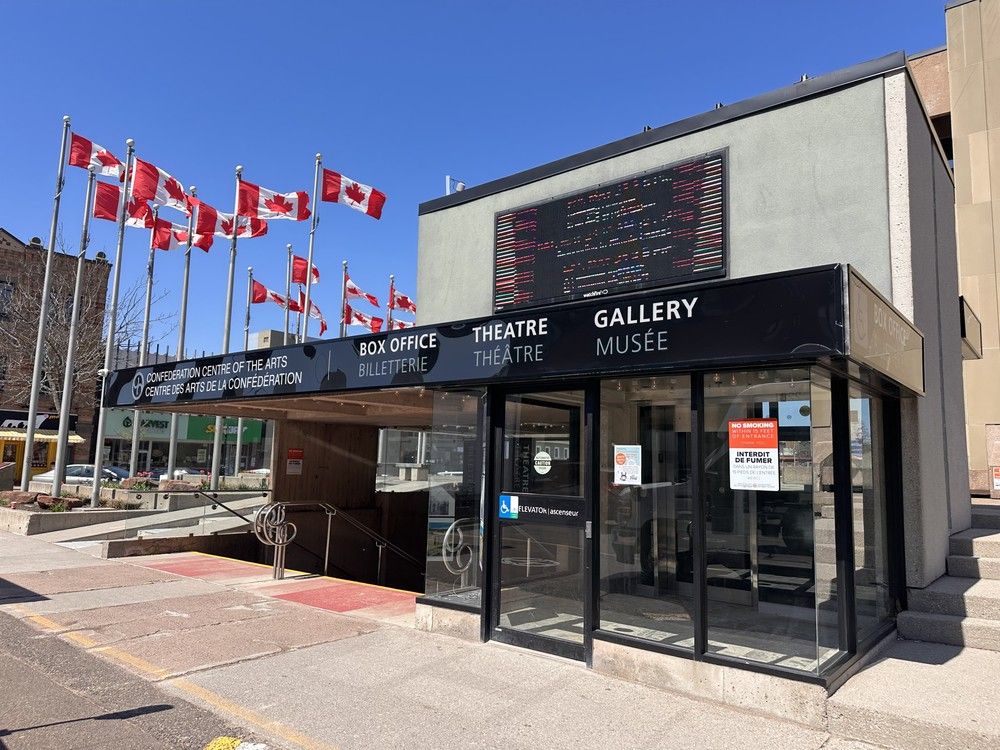
A Charlottetown café owner says when she agreed to participate in a fundraising campaign run by the Confederation Centre of the Arts, she didn’t expect to be asked to distribute “problematic” imagery.
Laura Noel, who owns a café in downtown Charlottetown, said she was contacted by the centre and asked to participate in the campaign by using branded coffee sleeves. However, upon opening the box, she was surprised to find Sir John A. Macdonald’s face printed on the front of the coffee sleeves.
“It was not what I expected,” she said.
Noel received 1,250 sleeves and immediately felt uncomfortable using them, especially given the City of Charlottetown’s previous decision to remove a statue of Macdonald due to repeated vandalism and public concern about his legacy.

Noel said the centre’s campaign risks placing the burden of historical controversy on small businesses like hers.
She said putting the sleeves on cups could lead to uncomfortable customer interactions that business owners aren’t prepared for.
Message and timing
Noel emailed the Confederation Centre on July 25 asking for clarity, but said she received no response. After following up again on Aug. 6, she received an email from CEO Steve Bellamy later that day. She said the reply did little to ease her concerns and felt dismissive of the issues she raised.
She also questioned the decision to print the sleeves in orange, widely recognized as the colour of Indigenous reconciliation in Canada during a campaign that would run into September, which is National Reconciliation Month. Macdonald is linked to the creation of the residential school system in Canada that the country has since acknowledged was a cultural genocide.
“To me, there’s too many combinations of problematic things on one sleeve,” Noel said.
“Separately, they’re OK. We can talk about John A, we can talk about orange, but together, it’s just too problematic.”
Colour orange
According to email chains between Bellamy and Noel, the CEO said that orange has been part of the centre’s brand since 1964. But Noel felt the response overlooked the broader meaning of that colour in today’s context, especially when paired with an image of the former prime minister who pushed for residential schools.
“What I hear is orange is ours first, it was our colour first … we picked orange first, is what I’m hearing,” she said.
Noel said she felt misled by the lack of information when she initially agreed to participate, and that the centre should have considered the impact of using Macdonald’s image, especially when asking the public for donations. She imagined having a customer who was a residential school survivor.
“I would feel ashamed” to use the coffee sleeve, she said.
Promoting dialogue
The coffee sleeves were part of a national campaign titled “Where Canada Connects,” intended to promote dialogue about Canada’s past and future.
In a written response to The Guardian, the centre said its role as a memorial to the founders of Confederation includes confronting the difficult parts of history.

“This centre is a memorial to him and others, as well as a theatre and arts programming space,” the email said.
“There will always be some people who want the centre to erase and to never mention, but we do not have that option. Of course, we can always be sensitive about how we talk about it and how we refer to John A. Macdonald, but the centre can never stop talking about it or stop referring to it that is why we are here.”
The centre said the campaign is meant to present a challenge and a provocation, encouraging Canadians to talk about the issues that matter most to them. It also said it works continuously with First Nations and Indigenous communities and takes all feedback seriously.
Noel, however, said she hasn’t received the clarity she hoped for, and the experience has made her hesitant to partner with the centre. She still supports the institution and its work in the arts community, but felt this campaign was poorly communicated and lacked sensitivity.
Editor’s note: An earlier version of this story included information the interview subject felt was off the record. Slight changes have been made to reflect this.
- Stay informed: Don’t miss the news you need to know. Sign up for our newsletter today.
Vivian Ulinwa is a reporter for The Guardian in Prince Edward Island. She can be reached at vulinwa@postmedia.com and followed on X @vivian_ulinwa.